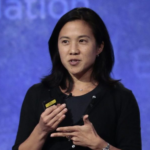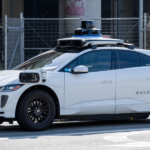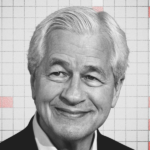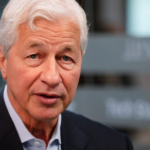When Big Tech first began deploying self-driving cars to San Francisco two years ago, companies encountered something unusual—popular resistance.
One old economy company preparing to enter the autonomous ride-hailing space is taking a completely different approach when it launches next year. Germany’s Volkswagen is wagering society at large is increasingly fed up with the collateral damage left behind by Silicon Valley’s move-fast-and-break-things mentality.
“Our approach is different—we deliberately want to act as partners that build upon existing infrastructure,” VW Group executive Sascha Meyer told Fortune during a test drive of its robotaxi. “A key point for social acceptance we believe is being a service provider whose presence is desired precisely because we will not be competing with systems already in place.”
This week, VW revealed the series production version of its autonomous ride-hailing cab based on its retro-styled VW ID. Buzz EV microbus. Packaged together with the requisite fleet management software and digital customer booking platform, it wants to offer local transportation authorities and other commercial fleets a turnkey solution that can be integrated effortlessly into their service.
Even if the first roughly 500 vehicles won’t be deployed to Uber for use in Los Angeles until next year, VW believes the race for market share is only just beginning.
Meyer runs MOIA, the mobility services subsidiary of the VW Group which will offer a high-tech version of the zero-emission Volkswagen ID. Buzz electric minivan complete with the backend software ecosystem around it.
Fortune had a chance to ride along with Meyer in one as the robotaxi navigated its way—with a safety driver behind the wheel at all times—through the busy streets of Hamburg. Here in Germany’s second-largest city, Volkswagen has quietly been testing the technology for several years now thanks to the active support of city officials.
The white label service Volkswagen has in mind means all customers need to do is slap their logo on the vehicle and adorn the customer-facing front end with their respective corporate identity and they are ready to go.
The group’s go-to-market strategy heavily incorporates public transit authorities, an approach influenced by its European roots. With their extensive wealth of well-built mass transit networks, these mainly state and municipal-owned companies play a role in urban, suburban and ex-urban mobility so crucial it would be difficult to displace them.
In a way, VW’s partnership approach to the market is a natural fit. Carmakers have decades of experience working closely with regulators from various agencies, state and federal, to ensure their cars conform with traffic safety and environmental standards.
Of course, Meyer knows that the competition has a head start they won’t hand over willingly.
“Waymo has an indisputable lead, that’s clear, and I don’t believe they’re going to slow down in any way,” he told Fortune.
Then there’s Tesla, which is gearing up to launch its own pilot in Austin due to launch Sunday. While Meyer readily admits it’s likely only a matter of time until Tesla can graduate to a full commercial robotaxi service, he believes all is not lost.
For one, neither is present in Europe, a market known for being far more risk-averse towards unproven technologies and quick to regulate against threats towards public safety. Tesla’s vaunted Full Self-Driving (FSD) feature, a software stack that will imbue its robotaxis with the requisite intelligence, hasn’t yet been approved for use anywhere on the continent. In fact, it’s not even available as an advanced driver assist.
This offers enough of an opportunity for Volkswagen to greenlight the production of at least 10,000 robotaxi vehicles, potentially more. And even if Waymo and Tesla do retain their lead by the time VW is ready, Meyer believes communities will demand some degree of healthy competition among autonomous ride hailing providers in order to ensure an optimum service for a low cost.
“No one, not even in the United States, will be happy if there’s a monopoly,” he said. “We don’t believe it will be a winner-takes-all market.”









